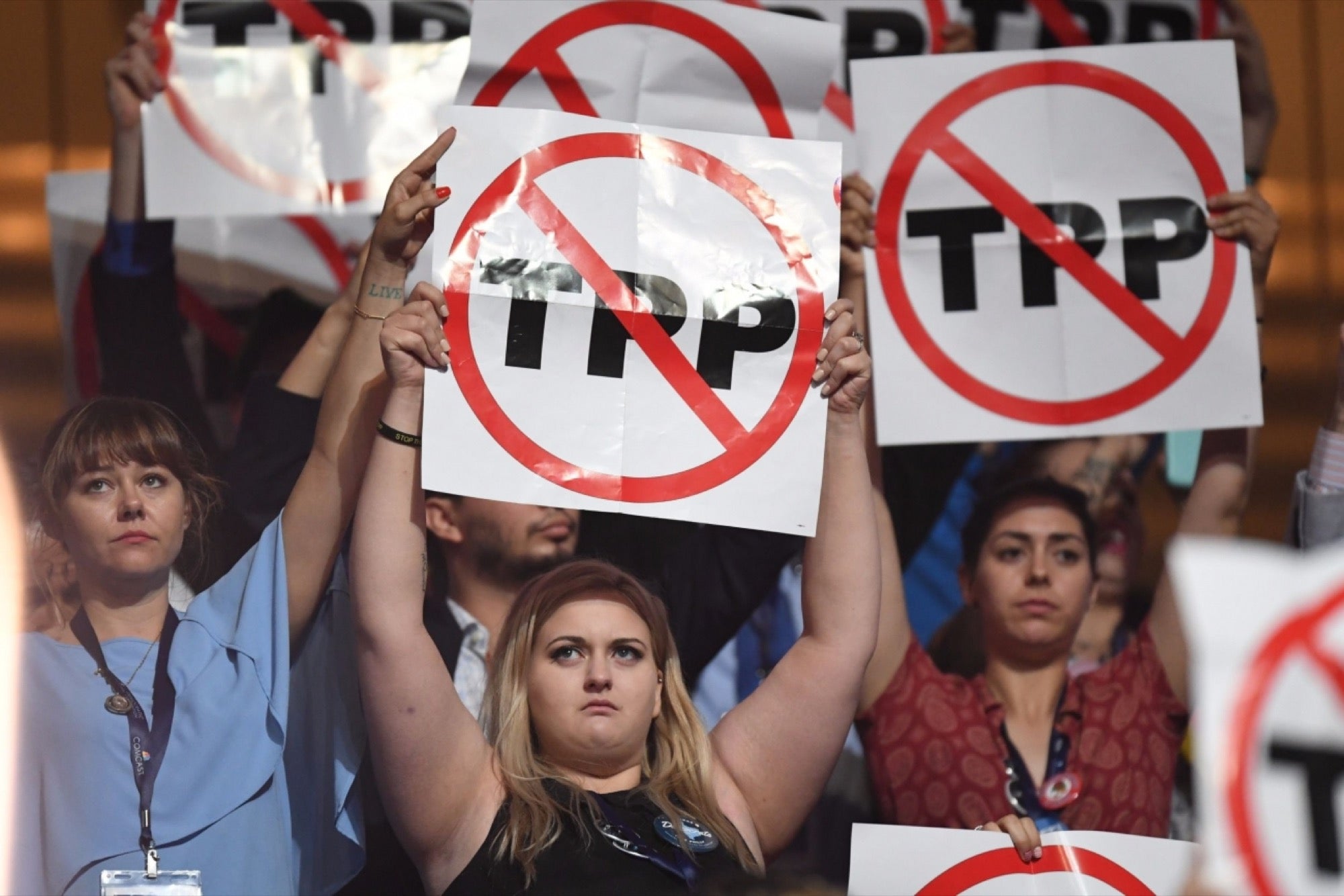How Critics of the 'TPP' Trans-Pacific Partnership Muddle Facts, Fictions and FearsBoth presidential candidates oppose this agreement. Where do you stand?
ByNigel Cory•
Opinions expressed by Entrepreneur contributors are their own.

During the first presidential debate, both candidates were quick to express their opposition to the Trans-Pacific Partnership (TPP) trade agreement, the 12-nation free trade agreement which the Obama administration negotiated (but which still needs approval from Congress).
Related:Worried About 'Free Trade'? Let's Strive For 'Ethical Trade' Instead.
And that opposition may emerge yet again during the second Hillary Clinton-Donald Trump debate this Sunday. That would be unfortunate because, while it's understandable why the TPP has generated heated debate -- as the U.S. economic recovery struggles to gain speed -- some of that criticism is valid, but most of it is not.
When you add up those opposition arguments and filter out the baseless criticism, in fact, it's clear that the TPP will support exactly the future trade and innovation needed to drive U.S. economic growth.
So, what's the reason for all the noise and disinformation? Well, for one thing, these outbursts make it difficult for policymakers and the public to weigh the legitimate pros and cons of the deal. For another, the source of this opposition is a small, but vocal, group of opponents who oppose not just the TPP, but what it more broadly represents: the sensible next step toward a more globally integrated and prosperous economy.
These "anti-globalists" -- with dramatic names like Expose the TPP and Rock Against the TPP -- see the agreement as an abhorrent symbol of globalization. They are not picky in the targets of their TPP opposition, either.
They're against the agreement's rules-based trading system at the center of globalization and against multinational corporations and many sensible ecommerce and intellectual property rules in the TPP.
Related:How Two New Trade Agreements Can Propel Your Growth
However,a closer -- and calmer -- examinationshows that these criticisms do not stand up to scrutiny. Quite to the contrary, deeper, rule-based global integration will bring benefits to the global economy and U.S. consumers and workers alike. Unfortunately, many TPP opponents prefer a radically different economy that is local (not global), small (not corporate), protected (not competitive), and static (not innovative, nor disrupted).
Here are two of the opposition's biggest arguments and a response to each.
The TPP's rules for ecommerce and intellectual property
Global trade is increasingly dealing in data and ideas, and the United States leads in both, so it is hardly surprising that people in this country want to protect both.
First, the agreement establishes new rules to protect the ability of data to move across borders.Criticsclaim this is an attack on privacy -- distrusting the way modern digital companies use data. They错误的认为数据存储的小鬼ortantto its security. In fact, what matters are the measures used to protect the data.
The TPP would protect the data flows that are the lifeblood of the digital economy. The TPP prohibits a growing practice called "data localization," whereby countries (such as China) force companies to build or use local data centers. This gives local firms an unfair advantage over U.S. companies, as it makes business costlier and more complex for these firms.
But by no means does the TPP ignore privacy issues. Negotiators realize privacy is important for consumer confidence; hence, that is why the agreement requires TPP member countries to have a privacy protection framework in place.
The TPP's aim to get other countries to implement intellectual property rules
Despite the clear success of the U.S. approach to using intellectual property to spur innovation, many critics oppose the TPP's aim to get other countries to implement similar rules. These critics, who prefer an "information-should-be-free" approach, believe it's wrong to charge for content like movies, music, and software, and ludicrously call the rules in the TPP an attack onfree speechandprivacy.
What should be kept in mind, though, is that many of these critics, such as the public advocacy groupsPublic Knowledgeand theElectronic Frontier Foundation, oppose not only the U.S. approach to intellectual property in the digital economy -- which the TPP reflects -- but also the idea that we should extend a whole range of common-sense policies that exist in the offline world to the online one.
Intellectual property is critical to modern trade because, while technology makes it easier for U.S. companies to sell digital goods and services overseas, it also makes intellectual property theft much easier, directly harming U.S. workers in intellectual property-based industries.
It is therefore important that the TPP create a common set of rules to make it easier for U.S. innovators and creators to capitalize and protect their ideas -- through patents, copyrights, and trademarks -- in member economies. Despite the agreement's obvious benefits, opponents want the TPP to fail, as their end game is support for weak-to-non-existent intellectual property protections, especially online.
As policymakers in the United States and elsewhere consider the TPP, they should filter out the baseless claims of this vocal minority who do not like globalization or intellectual property.
The TPP is the best chance the United States has had in 20 years to address modern barriers to trade; indeed, many current rules for intellectual property and ecommerce were set down in international agreements signed in the mid-1990s, when the internet as we know it barely existed.
Related:U.S. Tech Firms Urge Presidential Candidates to Embrace Trade, High-Tech Visas
TPP是一个有很大改进的框架global innovation and trade in the Asia-Pacific region and should be supported to ensure U.S. companies are better able to compete in some of the world's fastest-growing markets











